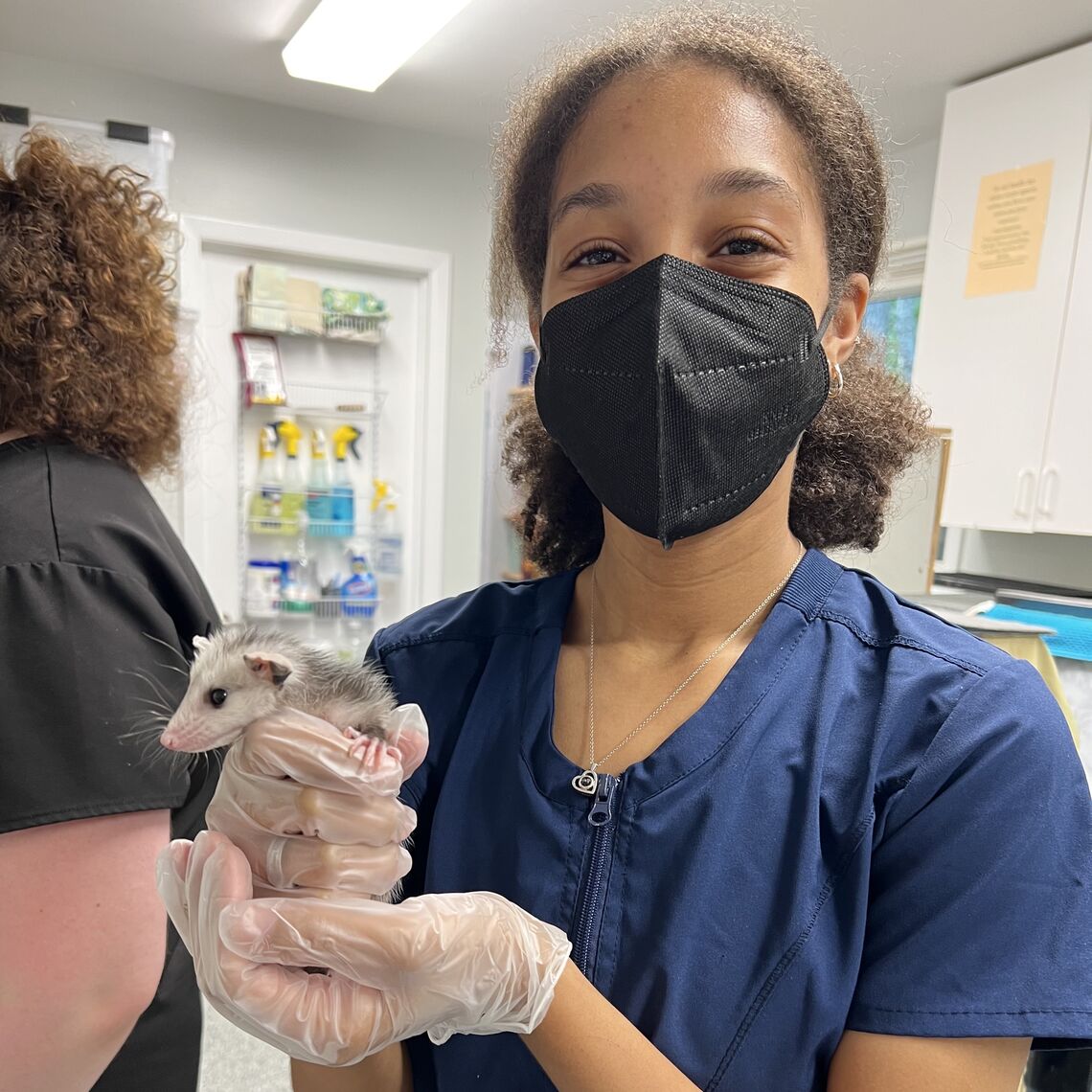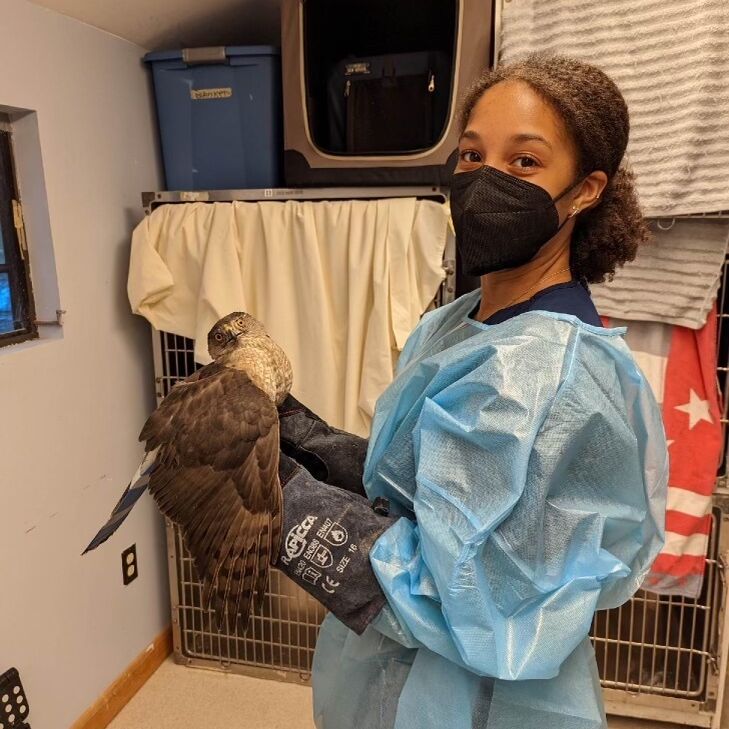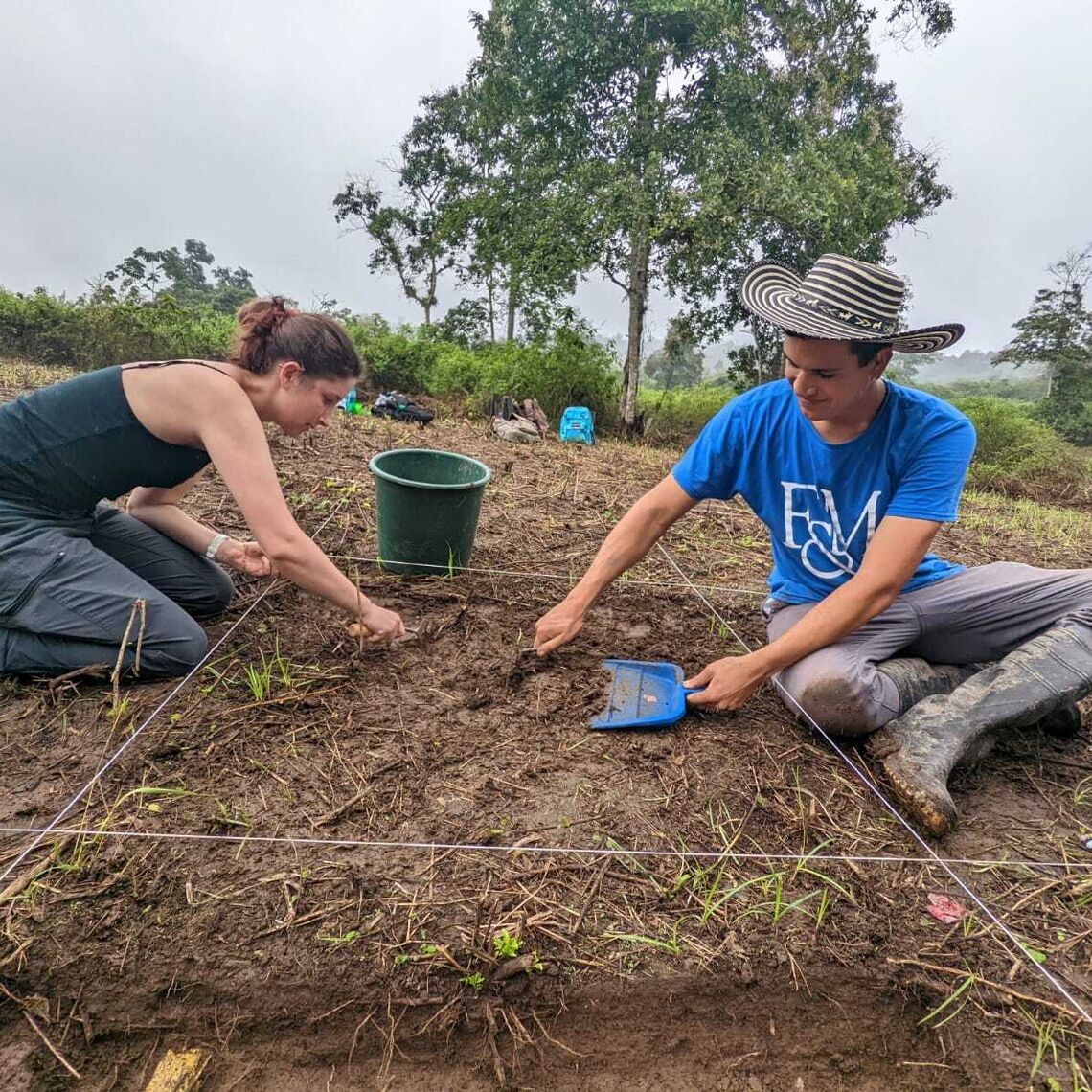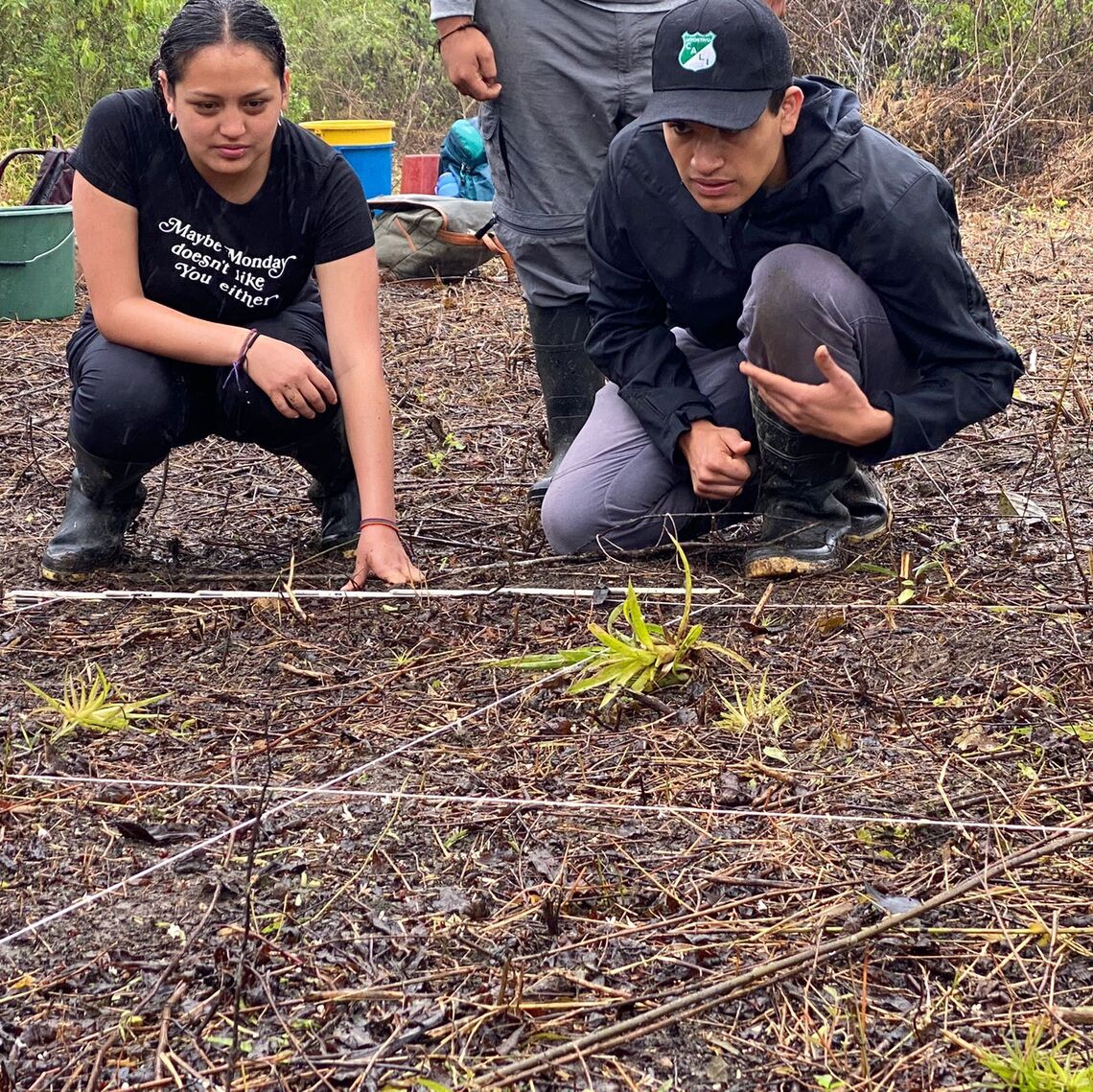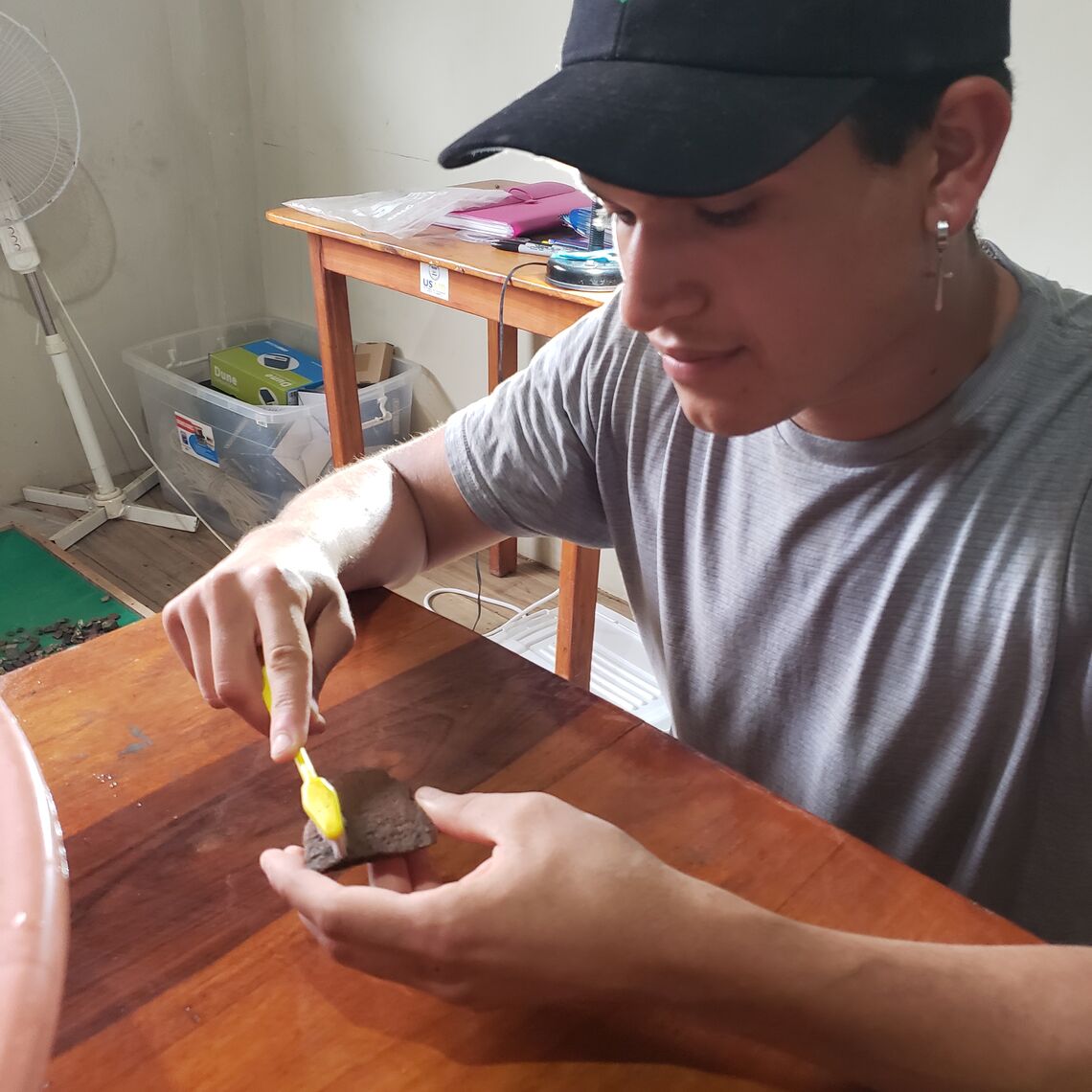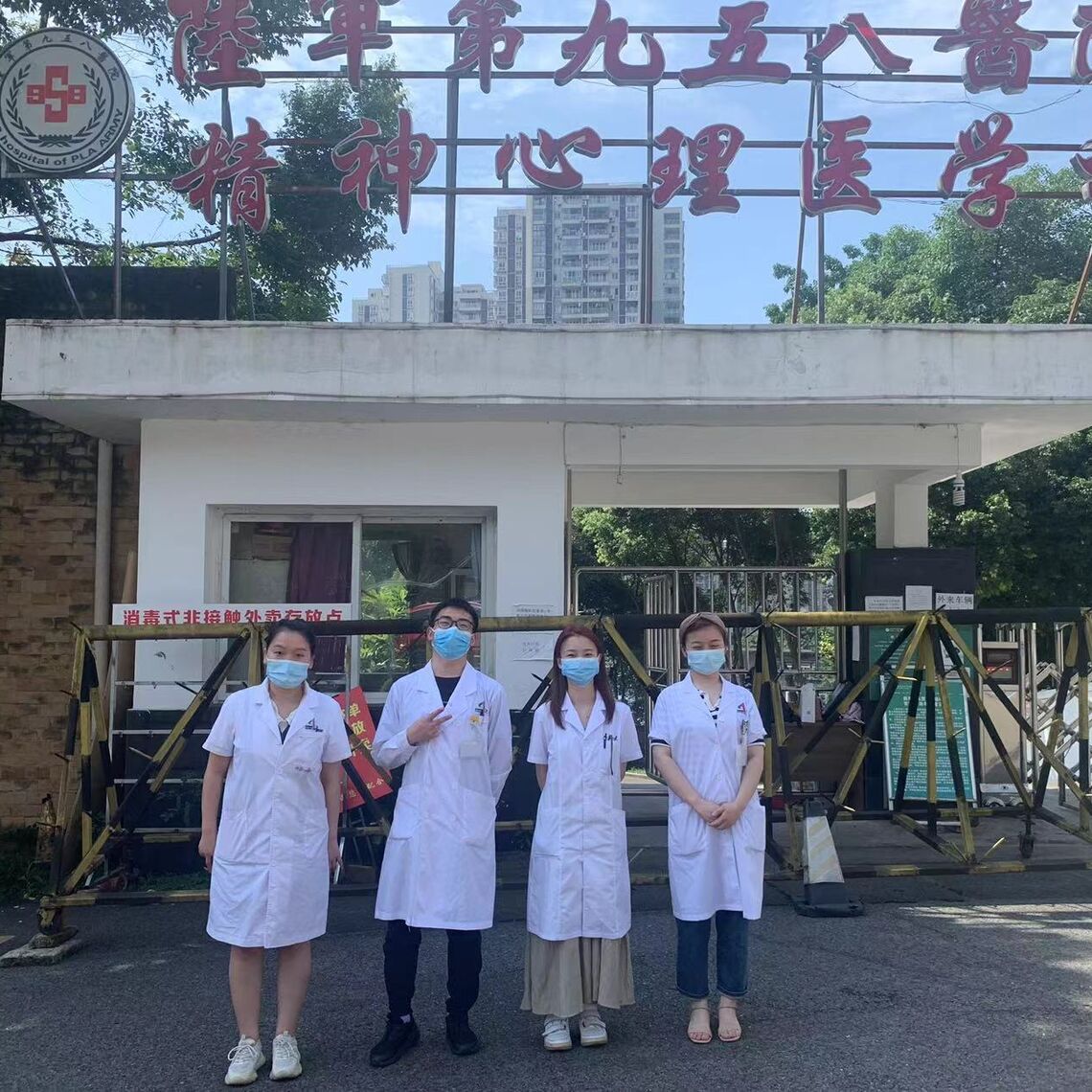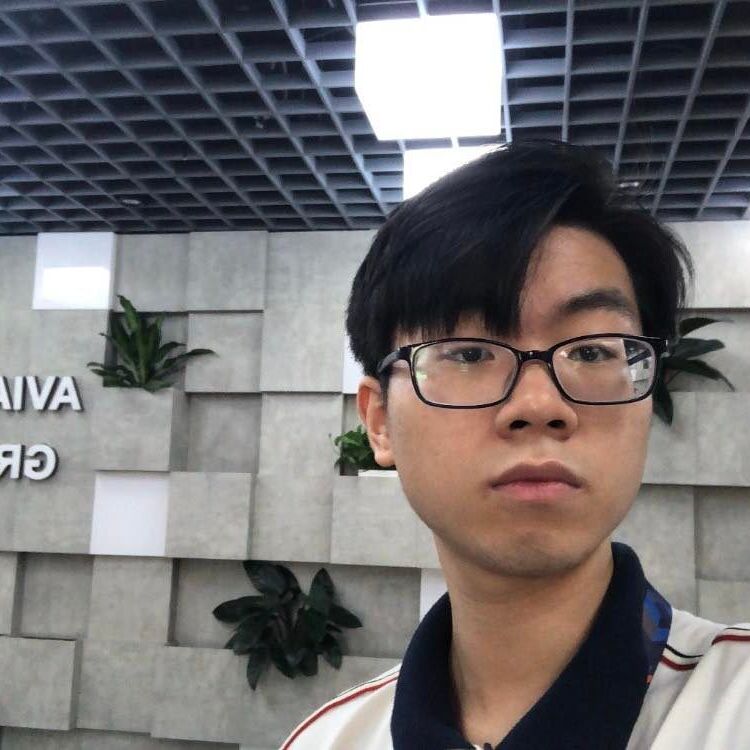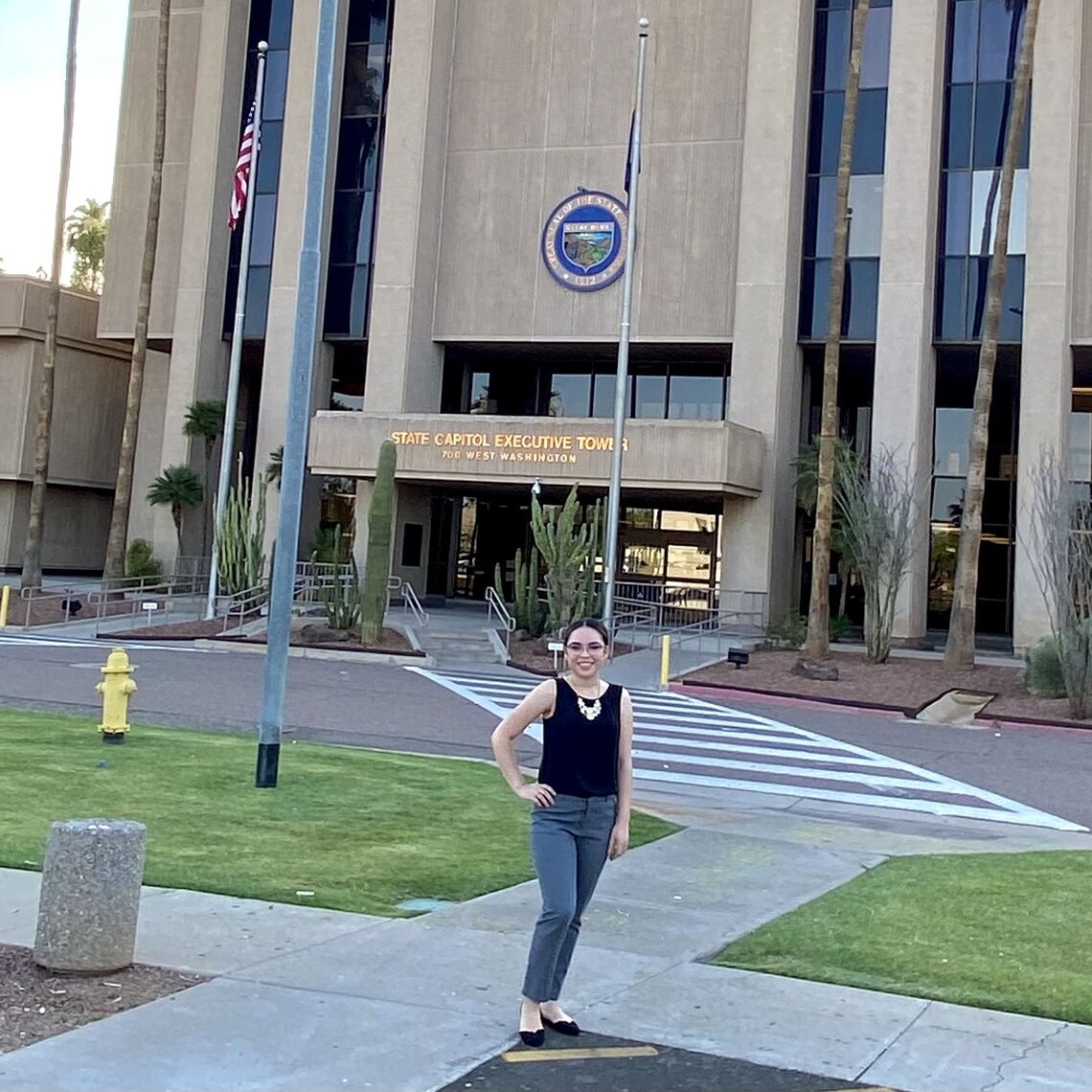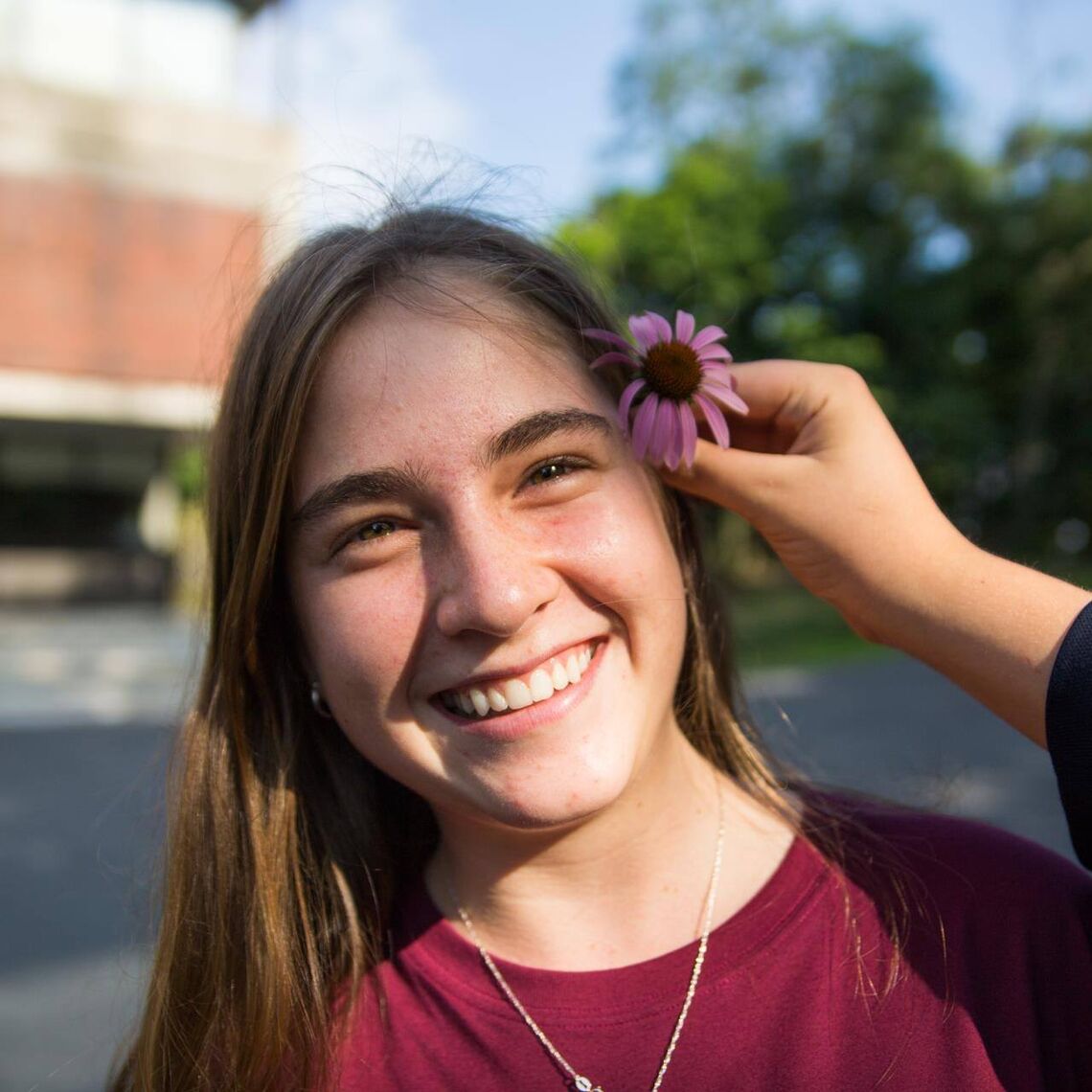F&M Stories
Six Students' Quests for Summer Fieldwork and Experience
What does a Franklin & Marshall College student do during the summer? Many take the 15 weeks before the start of their next academic year to dive into the fields and industries they're studying in the classroom.
"Pursuing summer experiences allows students to explore fields and job functions of interest that can ultimately shape and inspire their paths in both expected and unexpected ways," said Ashley Fry, director of career development with the Office of Student and Post-Graduate Development (OSPGD).
OSPGD advisers are not only available to help students discover and land these opportunities, but also to direct them to generous donor funding that can help to offset the financial burden of an unpaid or underpaid summer experience.
"These funds allow students to take on new opportunities that they may not have been able to otherwise due to financial constraints," Fry said. "It empowers students to seek a wide variety of opportunities and gives them flexibility to explore fields of interest in which internships or other student roles tend to be generally unpaid or minimally paid."
This summer, 40 students are pursuing summer experiences supported by donor funding awarded through OSPGD. The scope of summer positions varies greatly, with students gaining transformative experiences across multiple states, countries and continents. Six of these students shared how these summer experiences are enriching their academic journeys.
Bri Thomas '24
Summer Experience: Wildlife Care Intern with Woodford Cedar Run Wildlife Refuge in Burlington, N.J.
Funded By: Schapiro-Cadwell Internship Endowment
Majors: Animal behavior and anthropology
Tell us about your summer experience. What is a typical day like?
No two days were ever exactly alike, which was one of the biggest appeals for working there. Each day consisted of being given an initial task to complete, most common being to prepare dishes for one (or a group of) animal(s), as well as cleaning their enclosure. The animals on rotation for feedings usually consist of owls, hawks and other large birds, skunks, deer/fawns, raccoons, ducklings, opossums, groundhogs, the bird room (which spans a number of New Jersey's native birds), squirrels, etc. Upon completing this task, interns and volunteers were to come back to the main floor of the hospital and assist with other feedings and tasks that needed to be completed.
Has anything about this experience surprised you?
Pleasantly, I was surprised by how much I enjoy working reception and wildlife. Reception entails a staff member, including volunteers and interns, to present information to concerned callers and individuals that have brought in an animal. Thus, it is one of the fastest ways to learn large quantities of information. This is due to the similarities to questions people have and the repetition of your responses. In addition to working with the animals, as I previously mentioned, I only recently decided to pursue a career specific to wildlife and exotic animals. I have learned a great deal about handling animals, information about the animals themselves, and so much more. The experience I've gained from being at Cedar Run has confirmed this decision and has made me more compelled to acquire additional opportunities that will offer me diverse experience both before and after going to veterinary school.
Jean-Paul Rojas '23
Summer Experience: Intern with Proyecto Arqueologico Rios Culebra-Colin (PARCC) / Dr. Sarah Rowe, University of Texas Rio Grande Valley in Dos Mangas, Ecuador
Funded By: F&M General Summer Experience Funds
Major: Anthropology
Minor: Latin American and Latinx Studies
Tell us about your summer experience. What is a typical day like?
With PARCC, the Proyecto Arqueológico Ríos Culebra-Colín (The Archaeological Project at the Rivers Culebra-Colín), I've been able to not only apply firsthand anthropological concepts and archaeological theory I learned at F&M to study the Early Formative Period Valdivia (3800-1450 BC), but gain invaluable excavation and laboratory analysis experience — such as identifying different types of bowls, jars, and pots, stone tools known as lithics. I also work directly alongside professors, fellow students (both from American and Ecuadorian institutions) and local community members in the processes of excavation and oral histories as a way of centering the work on the heritage and lives of the community.
On a typical day, I wake up at 5 a.m. to help prepare breakfast for the group, take a truck from our lodging to the comuna Dos Mangas, then hike to the site at Buen Suceso (four miles both ways) along the Culebra River, excavate different units, sift through the soil in search of artifacts— pottery, bones, lithics— map and photograph units, set geographic coordinates with the Total Station, then, around 1 p.m., return to town for lunch followed by laboratory time to wash and analyze artifacts until about 5 pm.
What inspired you to take on this experience?
As an anthropology major and Latin American studies minor with previous academic experience in Ecuador and a passion for Andean archaeology, this seemed like the perfect opportunity to gain fieldwork experience and form connections with other students and professors from Ecuadorian and American institutions, apply academic concepts in a specific context, and form bonds with community members.
Ziqi (Morgan) Yang '23
Summer Experience: Medical assistant with The Southwest Hospital of Army Medical University (AMU), Department of Psychiatry in Chongqing, China
Funded By: Rackow Kaminsky Endowed Fellowship for Pre-Health Students
Major: Psychology
Minor: Anthropology
Tell us about your summer experience. What is a typical day like?
As an assistant, I attend the morning shift at 8 a.m. and record what's new with my psychiatrist's patients overnight. After that, I follow my doctor on her ward rounds, noting changes in patients' medication and their personal needs. If a new patient comes in and needs to be hospitalized, I print the consent form and the hospitalization instruction and help the patient fill it in. That's one of the best things in my experience, as when a new patient comes, I get the chance to hear them describing their symptoms and even observe them personally! If my doctor is on her duty, I have another ward round with my doctor at 9 p.m. Other times, I could talk to the patients if I want. At the end of each month, I print each patient's check record for that month and organize them into their files.
What inspired you to take on this experience?
As I major in psychology and just took psychopathology last semester, this experience gives me a vivid look at what those symptoms look like and how the psychiatrist diagnoses them. Moreover, having the chance to spend some time with patients is so wonderful that I just cannot miss it.
Nam Vu '25
Summer Experience: Intern with FPT Software in Hanoi, Vietnam
Funded By: F&M General Summer Experience Funds
Major: Undeclared; likely computer science
Has anything about this experience surprised you?
I work together with three other interns and we spend most of the time writing codes in the morning and in the afternoon we spend one to two hours explaining our codes to each other and providing a plan for the next day/week. The codes I write are surprisingly different from what I learned in classes. It took me a month trying to keep up with everything and I have to learn a lot of frameworks and different programming languages.
What are your post-graduation goals?
I love computer science because of all the computer science classes I have taken at F&M. I want to be a software engineer and it's my dream to work at a big-tech company like FAANG (an acronym referring to five prominent American technology companies: Facebook, now Meta; Amazon; Apple; Netflix; and Google, now Alphabet). I'm still trying to figure out what branches of computer science that I want to pursue, but working in a tech company is definitely my goal in the future. Based on that experience I think I will truly know what interests me the most.
Annie Lopez '23
Summer Experience: Intern with the Arizona Department of Economic Security (DES), Governance and Innovation Administration in Phoenix
Funded By: Sidney Wise Public Service Internship Endowment
Major: Government
Minor: Latin American and Latinx Studies
Tell us about your summer experience. What is a typical day like?
During my day, I work closely with the Office of the Director through attending meetings, providing insight on policy ideas, and maximizing effective progress in department backlogs. I assist the DES Chief Privacy Officer with tracking privacy incidents, litigation holds, and public records.
What inspired you to take on this experience?
This experience aligned perfectly with my passion for government and community engagement. Through this government agency, I aim to help people in Arizona get their basic needs met, like unemployment insurance, adult protection services, medical and food assistance, housing and shelter assistance, etc. This opportunity has been a step for me to obtain experience in the work I want to do in my own career. When I graduate, I'm hoping to continue working for the government of Arizona. I would like to continue working for DES in its Refugee Resettlement program. My long-term goal is to work in the field I am most passionate about— immigration. I'm hoping to one day work as an immigration policy analyst and be a part of the change for my immigrant and Latinx community.
Valerie Bigio Fong '25
Summer Experience: Volunteer intern with Keren Or Jerusalem Center for Blind Children with Multiple Disabilities in Jerusalem, Israel
Funded By: F&M General Summer Experience Funds
Major: Undeclared; potentially psychology
Tell us about your summer experience. What is a typical day like?
I intern with a class of students that range from the ages of 11 to 13. They have visual impairment, but some have additional cognitive and hearing disabilities. My typical day usually includes feeding them because they are not able to do that on their own; helping with any therapy they have during the day, which can include art therapy, music therapy, physical therapy and occupational therapy; and taking them outdoors so that they can have fresh air. Overall, I try to enhance their day by having fun with them, telling them stories, playing music, and giving them affection. The work day also includes meetings where we talk about logistics and where we learn more about the students' visual impairment and how to communicate with them.
What inspired you to take on this experience?
I have always been interested in special education, but have not had an immersive experience like this one before. I thought that this summer was going to be the time I was going to explore if I wanted to do special education as a profession. Before this internship I did not realize that there are many types and levels of disabilities and different ways to approach them. I have realized that if I decide to go into the special education profession, there are many paths I can take. I also decided to do my internship in Israel because I see myself moving here in the future and I wanted to see what the work life is like here.
Related Articles
August 19, 2024
History Detective Digs into the Past
When Sofia Portillo arrived at Franklin & Marshall College, majoring in history was not a subject she considered until she took a class. Then she found her passion.
May 23, 2024
Ten Faculty Earn Tenure, Promotion
At its May meeting, the Board of Trustees unanimously endorsed the recommendations of the Professional Standards Committee and the Provost, granting four F&M faculty tenure and promotion to associate professor, while six others were promoted to full professor.
November 15, 2019
Mueller Fellow Tells Stories to Illustrate Immigration Debate
Sandra Cisneros, a dual citizen of the United States and Mexico and a noted author and activist, chose a different way to discuss the immigration question during her recent visit to Franklin & Marshall.

